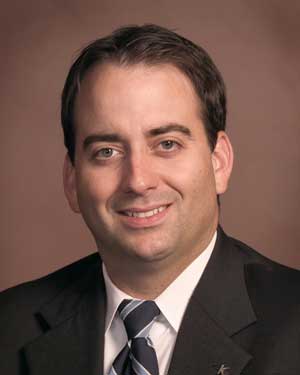Cost Segregation Fuels Depreciation Acceleration



February 9, 2007
BY Jesse McCurry
While many ethanol operators are aware of available federal and state tax credits to assist in financing ethanol plant start-ups, some lesser-known options that are often missed can help minimize their tax liability.
Because of the unique nature of ethanol plants, operators can often take advantage of a shorter depreciation life and defer paying taxes, increasing cash flow and allowing an ethanol firm to concentrate assets on paying down debt or building cash reserves. Engineering-based teams can help plants realize significant advantages while fully meeting Internal Revenue Service (IRS) regulations, rulings and case law.
According to the Journal of Accountancy, certified public accountants should routinely recommend that their clients or employers use cost segregation whenever the expenditures for a structure, including leasehold improvements, equal or exceed $750,000. An ethanol plant expenditure in the tens of millions of dollars is a great fit.
The benefits of conducting a cost segregation analysis are:
--Reduction of federal income taxes in the building's early years
--Significant increase in cash flow
--Ability to withstand IRS scrutiny
"Getting a lot of these structures classified as equipment for tax purposes has helped expedite our depreciation," said Dick Sterrett, an experienced ethanol investor. "Most of these plants, after eight years, are going to be pretty much depreciated out, whereas storage and warehouse buildings would normally be considered 30-year property. This should help considerably when replacing equipment that has a very short lifespan—that is common within the industry."
The goal is to identify all the "hidden" personal property that traditionally has been mistaken as real property. Personal property is typically depreciated over five to seven years while real property is over 39 years, or not at all if classified as land.
This opportunity isn't just for new plants. Those already producing ethanol can still take advantage of these tax-deferring opportunities. For example, if someone built a plant in 2000 and didn't have a cost segregation study done, one can be completed now to accelerate the depreciation. Classification of assets placed into service in past years can be corrected without the need to amend prior years' tax returns, and the total depreciation adjustment identified for all prior years can be fully recognized in the year of change.
East Kansas Agri-Energy LLC in Garnett, Kan., saw the value in this service. "Kennedy and Coe [LLC] connected us with tax incentives and credits that we otherwise wouldn't have known about," said Tom Leitnaker, East Kansas Agri-Energy CFO. "They assisted us with our cost-segregation analysis, which has been extremely helpful."
Some plants have increased first-year cash flow upwards of $2 million by taking advantage of this service.
Jesse McCurry is a business development consultant with Kennedy and Coe LLC, a Kansas-based certified public accountant and consulting firm that is among the Top 100 firms in the nation. The firm is a member of the Renewable Fuels Association, the Ethanol Promotion and Information Council and the American Coalition for Ethanol. Reach McCurry at jmccurry@kcoe.com or (316) 691-3758.
Because of the unique nature of ethanol plants, operators can often take advantage of a shorter depreciation life and defer paying taxes, increasing cash flow and allowing an ethanol firm to concentrate assets on paying down debt or building cash reserves. Engineering-based teams can help plants realize significant advantages while fully meeting Internal Revenue Service (IRS) regulations, rulings and case law.
According to the Journal of Accountancy, certified public accountants should routinely recommend that their clients or employers use cost segregation whenever the expenditures for a structure, including leasehold improvements, equal or exceed $750,000. An ethanol plant expenditure in the tens of millions of dollars is a great fit.
The benefits of conducting a cost segregation analysis are:
--Reduction of federal income taxes in the building's early years
--Significant increase in cash flow
--Ability to withstand IRS scrutiny
"Getting a lot of these structures classified as equipment for tax purposes has helped expedite our depreciation," said Dick Sterrett, an experienced ethanol investor. "Most of these plants, after eight years, are going to be pretty much depreciated out, whereas storage and warehouse buildings would normally be considered 30-year property. This should help considerably when replacing equipment that has a very short lifespan—that is common within the industry."
The goal is to identify all the "hidden" personal property that traditionally has been mistaken as real property. Personal property is typically depreciated over five to seven years while real property is over 39 years, or not at all if classified as land.
This opportunity isn't just for new plants. Those already producing ethanol can still take advantage of these tax-deferring opportunities. For example, if someone built a plant in 2000 and didn't have a cost segregation study done, one can be completed now to accelerate the depreciation. Classification of assets placed into service in past years can be corrected without the need to amend prior years' tax returns, and the total depreciation adjustment identified for all prior years can be fully recognized in the year of change.
East Kansas Agri-Energy LLC in Garnett, Kan., saw the value in this service. "Kennedy and Coe [LLC] connected us with tax incentives and credits that we otherwise wouldn't have known about," said Tom Leitnaker, East Kansas Agri-Energy CFO. "They assisted us with our cost-segregation analysis, which has been extremely helpful."
Some plants have increased first-year cash flow upwards of $2 million by taking advantage of this service.
Jesse McCurry is a business development consultant with Kennedy and Coe LLC, a Kansas-based certified public accountant and consulting firm that is among the Top 100 firms in the nation. The firm is a member of the Renewable Fuels Association, the Ethanol Promotion and Information Council and the American Coalition for Ethanol. Reach McCurry at jmccurry@kcoe.com or (316) 691-3758.
Advertisement
Advertisement
Upcoming Events





